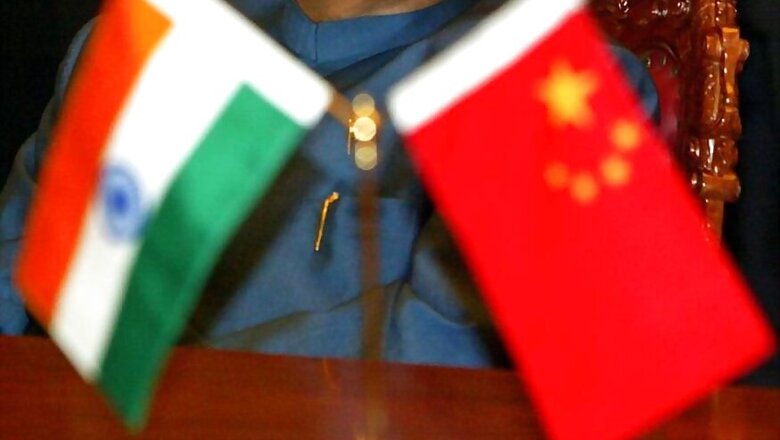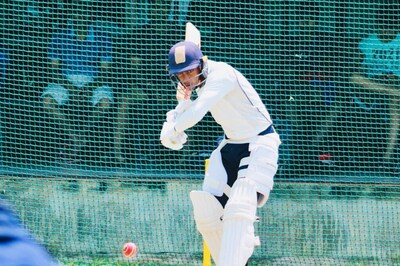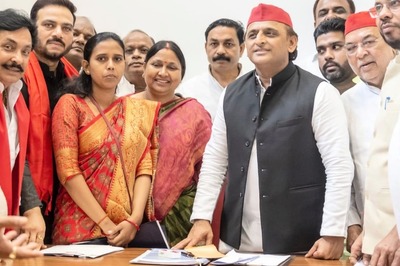
views
Beijing: "No change" has taken place at the Doklam standoff area after it was resolved last year, India's envoy Gautam Bambawale said and blamed China squarely for the face off, saying it happened because Beijing tried to alter the "status quo" which it should not have.
The 73-day long standoff ended on August 28 last year after China agreed to halt the road building activities at Dokalam in Sikkim Section.
"No, I can tell you that in Doklam area, which we call close proximity or sometimes the face off site, the area where there was close confrontation or close proximity between Indian and Chinese military troops, there is no change taking place today," India's Ambassador to China Bambawale said, reacting to reports of Chinese military stepping up infrastructure build-up in the area.
The Chinese side may be putting more military barracks to put in more soldiers, but that is well behind the sensitive area, he said in an interview to Hong Kong-based South China Morning Post.
"Those are the things you're free to do and we are also free to do, because you're doing it inside your territory and we are doing it inside our territory," Bambawale said.
Indian troops intervened to stop their Chinese counterparts building a road close to India's narrow corridor "Chicken Neck" area connecting northeastern states. Besides China, the area is also claimed by Bhutan.
Recent reports said that Chinese military was trying to work around or outflank the Indian troops at the Dokalam area.
Bambawale also reiterated his earlier comments that China should not change the status quo along the Indian border and inform India about its plans earlier.
"In the sense that if the Chinese military is going to build a road, then they must tell us 'we are going to build a road'. If we do not agree to it then we can reply that, 'look, you're changing the status quo. Please don't do it. This is a very very sensitive area," the envoy said.
During the Doklam standoff, China claimed that it had informed India about its plans.
About lessons to be drawn, he called for delineation of the 3,488-km long Line of Actual Control (LAC) which China has refused.
"The India-China boundary is un-demarcated and un-delineated, so we have to talk to each other to delineate and demarcate it, which means to draw the boundary line.
"Now for the last 30 years, not a single shot had been fired between the India-China border, which shows that we have been successful at maintaining peace and tranquility. Even during the Doklam incident, a very serious incident, there was no firing, we were able to maintain peace and tranquility. I think this is a successful example of diplomacy between our two countries," Bambawale said.
He said both countries should move further to solve the problem.
"We need to move further to actually solve the problem, which is to draw the boundary line. The boundary is quite long between India and China, roughly 3,500 km. In order to maintain the peace and tranquility, there are certain areas, certain sectors which are very sensitive, where we must not change the status quo. If anyone changes the status quo, it will lead to a situation like what happened in Doklam.
"The Chinese military changed the status quo in the Doklam area and therefore India reacted to it. Ours was a reaction to the change in the status quo by the Chinese military," he said, stressing that the two countries should have high-level communication on it.
"I agree entirely that it has to be brought down to practical levels. It shows that when incidents like Doklam happened last year, it means that we were not frank enough and candid enough with each other. So we need to increase the level of frankness," Bambawale said.
At present both countries are having "a lot of dialogue" at the political level and also at the economic level, the Indian envoy said as he welcomed Chinese Foreign Minister Wang Yi's recent comments that Indian elephant and Chinese dragon must not fight but dance together.
Referring to various visits planned between the two countries including that of Prime Minister Narendra Modi in June to China to take part in the Shanghai Cooperation Organisation (SCO) summit, he said that both the countries "especially on the political level, must be very frank and open and candid with each other".
"There are some issues and problems between India and China, if we have to solve those problems, we need to talk candidly. That's what I mean about the candid discussion. Only through talking frankly and candidly, we will be able to solve the issues and problems and understand each other's concerns," Bambawale said, asserting that the boundary issue is the most important problem between India and China.
"It is a leftover from history, but today's governments are trying to tackle it. We are giving it a high priority. But only when both sides talk to each other very frankly and candidly, we will be able to resolve this boundary issue and decide on a boundary," the envoy said.
Both the sides should address each other's concerns, he said.
"There are two principles that India has suggested to China. One is that each side must be sensitive to the other side's aspirations, their concerns, their priorities and so on. The second is that we must not allow differences to become disputes. For example, we might have differences of opinion on Belt and Road, but that we must not allow that difference of opinion to become a dispute," Bambawale added.




















Comments
0 comment